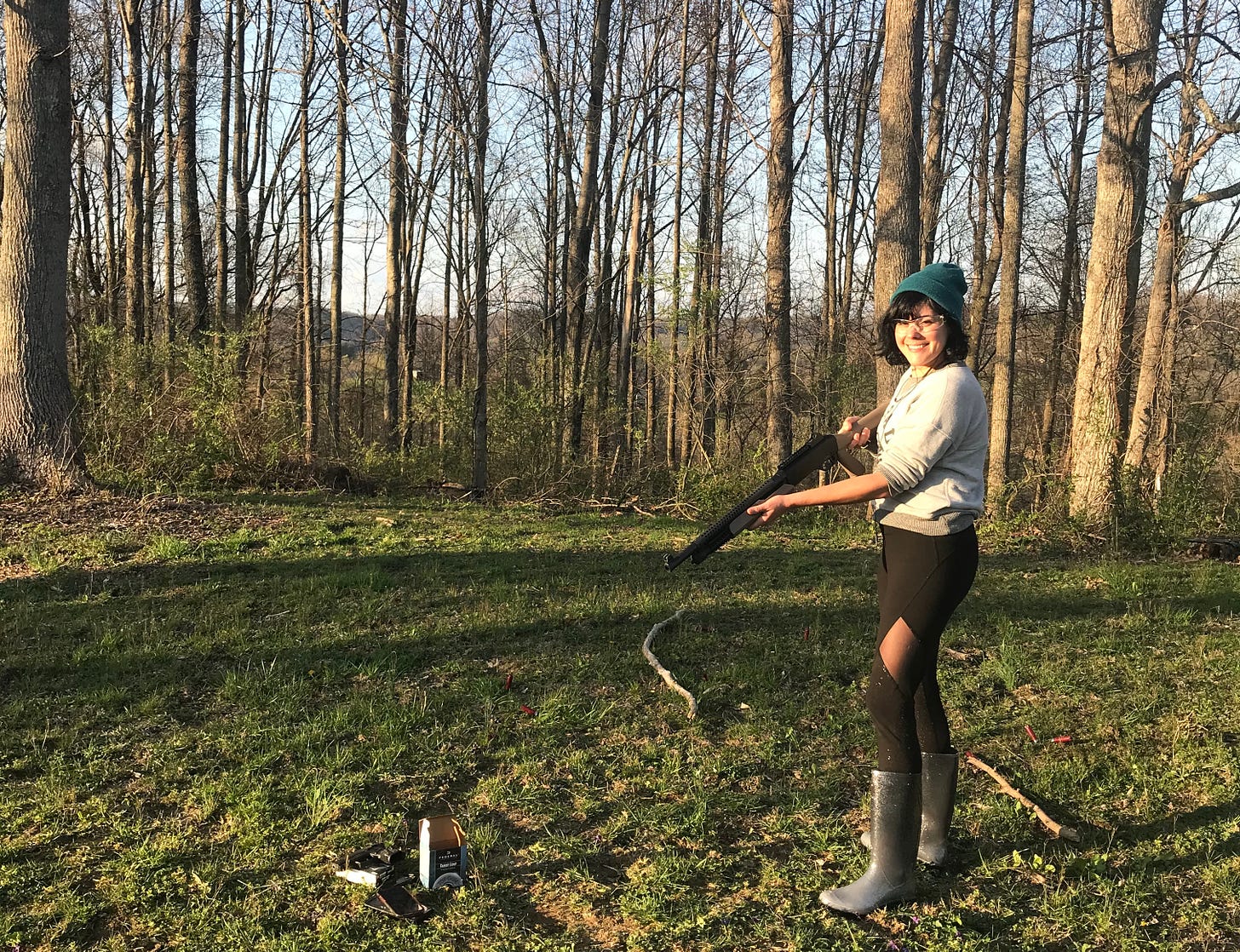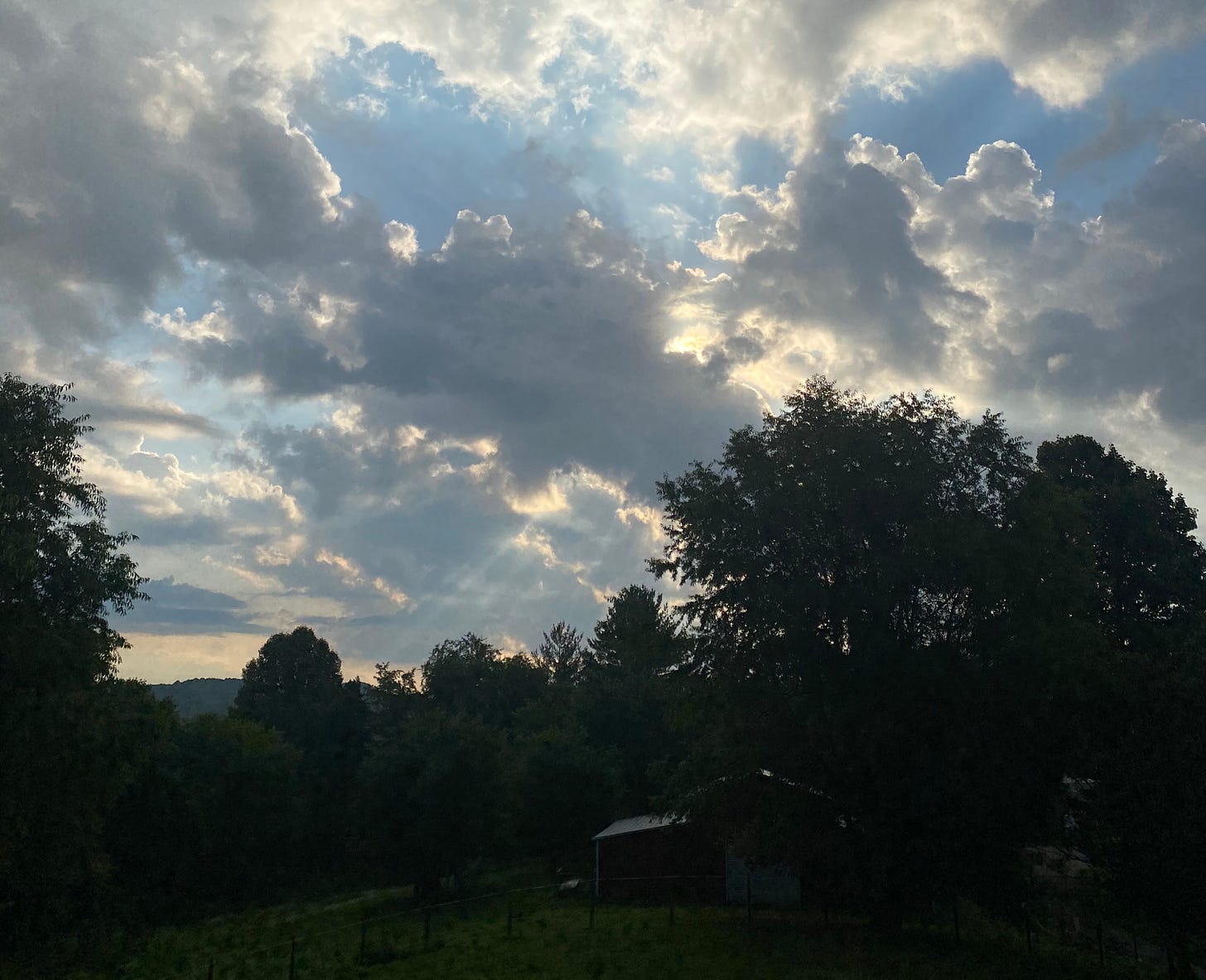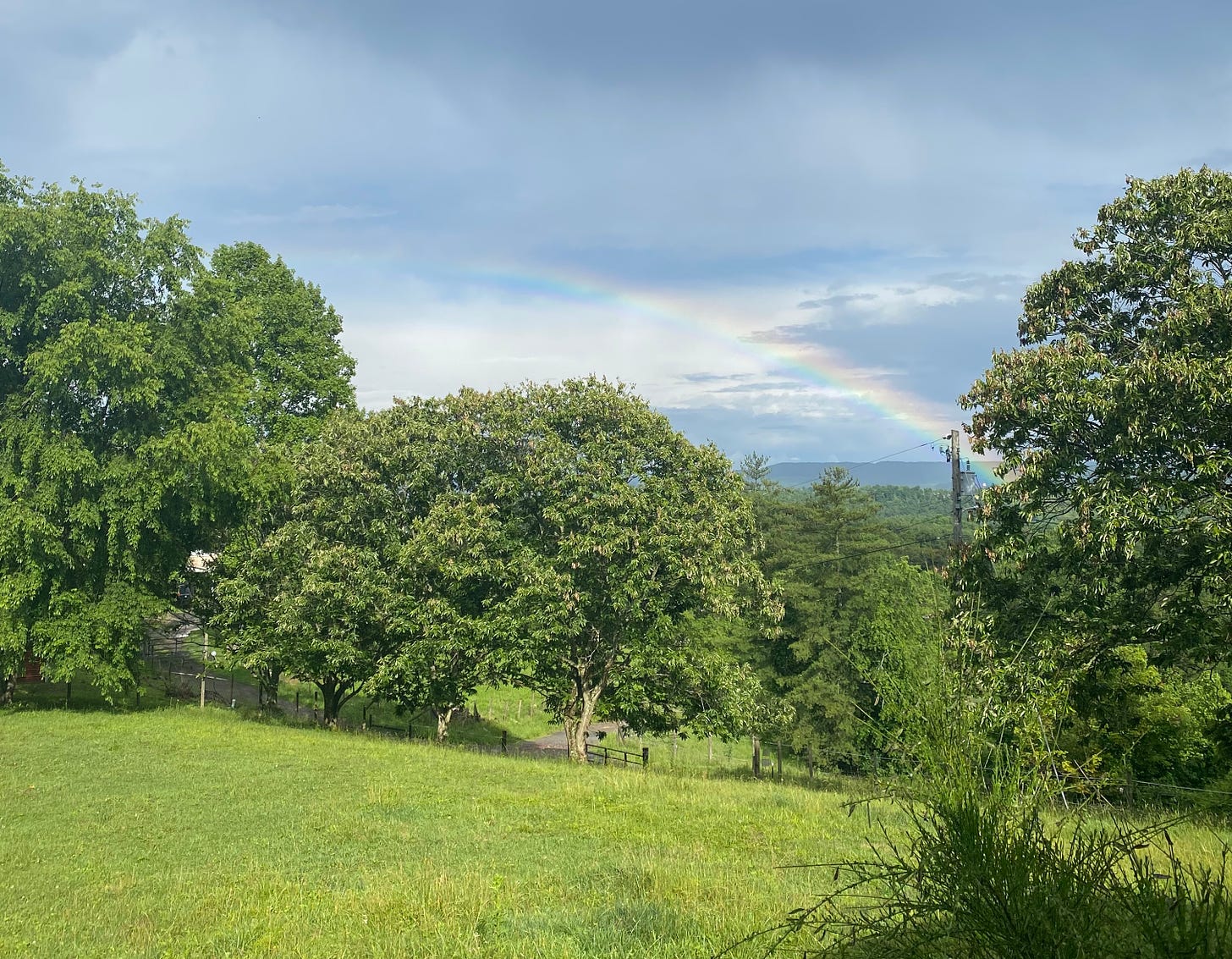Follow The Sound
The Future of Music Journalism Will Not Be Written By Sell-Outs + Farewell to West Virginia

I went to see Robert Christgau speak in Greenpoint last fall.
Many modern music writers seem to take issue with Christgau for being a sexist blowhard or whatever, as they do with other rock critics of his generation (and, to some extent, rock music in general), but I enjoy his work, not least of all because it’s unquestionably infused with a love for music. I have a lot of respect for Christgau, something that only increased after I saw him speak.
Though a shrunken 78-year-old with a cane, Christgau was a pugilistic presence immediately, turning around in his seat to see who was coming into the room and throwing out questions to people he knew and to the people he didn’t. He read an excerpt from his forthcoming book concerning the history of bohemia in New York City, taking a moment to emphasize that the study of bohemia had always been the focus of his work and that he was the only critic to have two books of collected works coming out at the same time, or something to that effect. Afterwards, there was a Q&A moderated by Rob Sheffield (for whom I have little respect) where Christgau further delineated the history of his music writing and touched upon such topics as his enduring hatred of Duran Duran.
While others might have found the performative self-importance off-putting, that wasn’t my impression. What I saw that night was an old music critic reaching the end of the road who, underneath all the brashness, wanted to be reassured that his life’s work had not been a waste—that there was something more substantial to all those decades of record reviews and essays and scraps with other critics and musicians and even in his hatred of Duran Duran. He wanted it to mean something. I found it very relatable.
It’s always been important to me that my music writing mean something beyond its worth in the latest press cycle. I don’t consider music journalism a frivolous occupation when done correctly, just as I don’t consider music (or any art) a frivolous endeavor. But that was a lonely position to take in the pre-COVID world, when it seemed the only way to succeed in music journalism and keep your sanity was to abandon all notions of ethics and become so embedded in the machine that you no longer cared about the good of music as an art so much as music as an industry. That way it wouldn’t matter if you what you wrote was meaningless because music writing by its nature was meaningless—a hip form of advertising created to help people who don’t care about music become rich off people who do.


That was never an option for me. I’m extremely lucky to be employed by a badass company of true music lovers who let me write about whatever I want, but the fact is that I always have written about what I wanted. Starting from when I was writing reviews of local L.A. DIY bands for my own website to my favorite pieces for Bandcamp Daily, I’ve tried my best to document music in a way that is good for the art and for the culture more generally. Music means too much to me to consider doing otherwise. So does maintaining my integrity. But to take such a formalist stance on music writing, let alone to demand it of others, was considered quaint, even shrewish, by my so-called “peers.” After all, “everyone sells out eventually,” right?
Then COVID hit and made the notion of “selling out” moot by smashing the ad-centered publishing model that rewarded clickable garbage to the detriment of actual journalism and elevated the voices of those who paid fealty to the machine over those who decided integrity was worth more than a byline. Surprise!
Now that there is nobody left to sell out to, plenty of unemployed and under-employed music writers are occupying their free time by starting newsletters like this one and penning missives on what the future holds for music journalism, their answers couched in dark views centered around the fact that advertisers aren’t paying for it anymore. To me the answer is simple. If music journalism is going to die, it’s not because nobody is paying for it. Let’s be real, music journalism was never some golden ticket to financial stability. No, music journalism is going to die because nobody is actually fucking doing it.
Ask yourself, music writer: when is the last time you wrote seriously about an artist or scene that didn’t arrive in your inbox with pre-written biography and watermarked download attached? Do you care about the health of music as an art form or is it just a cool thing to be associated with? Are you curious about what you do not know or does it scare you to think that there are amazing things happening in places that you would never think to look? Are you righteous enough to put pen to paper for love and not money? Where do your loyalties lie—with the art or with yourself? If the answer to that last question is the latter, then please stop immediately because you will not be part of the future of music journalism. Furthermore, by continuing to take up space, you are hurting the people who will be part of it.
I’m fortunate to contribute to experimental music newsletter Tone Glow, and I say fortunate not simply because it’s an excellent publication, but because the writers are an insanely inquisitive bunch who inspire me every day with their fluid tastes and forward-thinking opinions. Still, every once in a while, these brilliant kids, who will think nothing of discussing with approval the merits of Joni Mitchell’s ‘80s albums and ‘70s Soviet artists that the majority of people would find unlistenable at best, will suffer moments of self-doubt.
“Does anyone else have imposter syndrome,” asked one immensely talented young writer one evening in the group chat. “What am I even adding to the discourse?”
Well, the answer is nothing if you’re playing by the old rules of engagement, which mandate the privileging of known entities over new discoveries, a constant spinning around on the hamster wheel of trends, the expressing of true opinions only when the stakes are the lowest, the creation of controversy for its own sake, and the conflation of PR with, you know, journalism. There’s an opportunity to change that framework now, especially with the rise of independent newsletter publishing unyoking music journalism from its reliance on remaining in the good graces of the music industry. However, it’s not going to happen if we allow people who were instrumental in the transformation of music journalism into a joke to dominate the conversation and continue projecting their lack of actual investment in music onto people who don’t share that flaw. Since the online publishing business model based around pleasing advertisers has crumbled into dust, there is no longer that particular excuse to fall back on. Not that it ever was.
Around 8 years ago, I was a huge fan of a particular band. The music was superficially silly punk, but there was an emotional depth to this band’s songs that made them special. That’s what I thought at the time, anyway, so much so that I wrote pages and pages about how much I loved their band. I went to every show and talked them up to everyone I knew. Then one night at a bar with the band’s lead songwriter changed my mind forever. I don’t remember exactly how this came up, but it probably was in response to me saying how much the music meant to me. I am paraphrasing his exact words, but this is the gist: “I’m just trying to write a meaningless song to be popular and so is everyone and anyone who says differently is lying. If you think there’s anything deeper in it, you’re an idiot.”
Shocked at his callousness, I responded: “Well, if you think I’m an idiot for liking your band, then I’ll stop going to your shows and I’ll never buy another one of your records and I’ll never write about your band again.”
“Good, you shouldn’t,” he replied.
My face must have betrayed something terrible because his own face suddenly fell, flush with the awareness that he’d just confessed something that could never be taken back. Indeed, I immediately stopped caring about that band who, shortly thereafter, attempted with marginal success to sell out and also who, to the surprise of no one, never made a good record again.
The band still exists, but it is in a state much diminished from those early days because the music, by admission and by design, is meaningless. Yet people make meaningless music all the time. That wasn’t the issue. What was offensive was the supposition that because he was a shallow piece of shit, everyone else must be too. This is how I feel about music writers who cannot own up to their own complicity in the muddying of lines between PR and journalism to their own benefit and so instead flippantly insist that there is no other definition of success (Capitalism, LOL!), which has the side effect of maintaining a kind of hegemonic mediocrity that poisons any alternate viewpoints by immediately negating them as irrelevant, old-fashioned, unimportant. I think that’s wrong.
There’s that old saying about the Velvet Underground that how few people bought their record, but everyone who did started a band. Why can’t that go for music writing as well? Music is a human story and to write about it meaningfully, we should tell the stories of scenes and artists and movements who matter because they don’t belong to everyone, because they have been forgotten, because they are ignored. Maybe millions won’t read an article about weirdos in West Virginia putting out experimental music cassettes, but the five people who do might feel validated enough to do their own thing or keep doing their own thing because they’ll know that somebody gives a shit. That will always be more impactful than a 10,000 word essay about the fucking Strokes or Joy Division or [insert band we all already know and agree is good/bad] meant only to get “engagement” on social media or make the writer look hip. Lest I be accused of being overly self-righteous, consider this: if nobody is getting paid to write about music anyway, why not be purist about it? What have we got to lose except our souls?
To the younger music writers reading this, believe me when I say that your opinions on music aren’t meaningful because they are yours and your experiences with music are not worth writing about just because they happened to you. They are worth writing about because hopefully, through the act of honestly expressing your connection to music without any thought to how it will help your standing in whatever bullshit hierarchy of cool has been sold to you by people who do not care about music, you can help people who do care get some form of empowerment that they will not get from those who hold a vested interest in suppressing any notions of ethics or morality in order to create a music culture that is easy to exploit. If music journalism is ever to move beyond mere critical gatekeeping, it will be by honestly parsing out our subjective relationship to music and pursuing the stories that illuminate the humanity of the art divorced from whatever status an association with it might bring.
You say you love music? I say, prove it. Show us what makes music so special, so vital, so unbelievably real it shatters your heart that such a perfect thing could exist in such a terrible world. Use your talent, if you’re lucky enough to have any, to tell the world why music is the most sacred of the arts because it is the most human, the most primal, the most universal and the most personal all at the same time. Don’t waste time writing about topics, albums, and artists that have been settled business for decades. Stop looking in the mirror and start looking around. Don’t follow trends. Follow the sound. Sell-outs will tell you that you need to write what sells, but that is a lie told to you by people who are lying to themselves in order to obscure their own inability to seek out what is not already presented to them in golden packaging, as if they were schoolchildren at a birthday party. Do not buy it. Write about music nobody cares about and make us care because you do.
Above of all, never, ever, ever lie about music, no matter how much money or power is dangled in front of you. Money and power can be taken away, but integrity is yours to keep. Look at all those who laughed at such a proposition. Are they not begging for subscribers just like you? And it’s not about you, anyway. Music needs to be good. Do right by the art that has done so much for you by being honest with your readers and with yourself. Anything less will only diminish the art that you claim to love.
Let me give you an example of what I mean.
I initially conceived of this piece as a paean to Mary Timony’s Mountains and my own journey to West Virginia, to the mountains, and how both have been pivotal to my life in some fashion. But to write that, to tie a specific experience to a record with which it has only the most tenuous connection (really just the title) would be to perpetuate the idea that music is merely a thing around which to hang images of own life like ornaments upon a Christmas tree—something that takes little talent, but a large ego to do. Remember, it is not you who is doing music the favor by writing about it, but music that is doing you the favor by giving you a map to the otherwise senseless series of events that make up a human life. What favors would I be doing my beloved Mountains by tying it to an experience with which it has no tether? I could do it, but Mountains is not what brought me to West Virginia and it has not been my companion during my time here and so it is not an appropriate vessel through which to communicate what they have meant to me. To say otherwise would be to sully both. It would be a lie.
Instead, I will tell you something true.

When I first took the train to Huntington, West Virginia, last October, while in the midst of a bleak depression over the apparent pointlessness of my career and life, I felt compelled to listen to “Scarborough Fair” by Simon and Garfunkel over and over again. It was a mystery to me, as I don’t even like Simon & Garfunkel in the best of circumstances, but I just felt like “Scarborough Fair” was what I needed to listen to and so I did. Face puffy with sadness and eyes brimming with self-pitying tears, I pressed my wet nose against the window splattered with raindrops to see my first images of West Virginia flashing by outside: trees losing their leaves, unknown animals rustling in the underbrush, and single windows aglow in the the back room of houses otherwise dark and empty. All the while a single question rang over and over again in my ears: “Are you going to Scarborough Fair?”
Now I see that it wasn’t a mystery at all. It was a map. Because look where I am writing this: Scarbro, West Virginia, a place I didn’t even know existed 6 months ago, but now will be a part of me forever. Scarbro, West Virginia, where the sunlit clouds floating over the endless green mountains look just as they do in those 19th century American paintings, the artist’s brush enthralled by the unbelievable majesty of the unknown world. Scarbro, West Virginia, where the skies turn pink in the midsummer evening and fireflies rise from the pastures where horses graze. Scarbro fair. Of course this is where I was going. It was always where I was going. Music told me so. I just couldn’t understand it at the time.
How beautiful it is, music. How loving, how loyal, how constant and true. How can it not mean something? Rationalists might chalk such connections up to mere coincidence, a figment of the imagination conjured to fit a narrative after all the cards have been laid on the table, but I don’t believe that. For me, there is comfort in knowing that the world is never truly silent. It is always singing to you. Everything vibrates at the atomic level, doesn’t it? Everything makes a sound. We hear voices in the womb long before we open our eyes to the light. If you are one of those people for whom music is a guiding force, the only thing that makes sense when nothing else ever will, then you must believe that following the sound will never lead you astray, because to follow the sound is to follow your heart. I’m a believer. How about you?

Farewell, West Virginia
This will be the last issue of Weird Girls Post created and sent from West Virginia—miracle of the world, light of my life, and the place where this newsletter was born. It is strange to think that Weird Girls Post will no longer be about the intersection of music life and mountain life, but I am the Weird Girl and so it goes where I go. However, before that happens, I would like to tell you one more true thing.
When I lived in Berkeley, various music friends from Los Angeles would stay with me whenever they were playing in town. One night, I was smoking out on the porch with a member of one such band and mentioned that shortly I’d be leaving the Bay Area for a while, something I did constantly when I lived there, trying to outrun the creeping feeling of disconnection that trailed me like a ghost for so long.
“Where are you off to,” he asked.
“New York, Chicago, L.A., and Honolulu.”
“Ah,” he replied. “You’re going on tour.”
And I’ve been on tour ever since, in some form or another. Yet, for the first time in ages, my sonic rootlessness is a source of wonder rather than anxiety. I think of all the wonderful things that have come to pass because I followed the sound to West Virginia and feel endless gratitude for them all. I leave here ready to face the world in a way that felt so impossible for so many years. Though I don’t know where the fuck I’m going to be even three months from now, wherever it is, I know my music family will be waiting with open arms to welcome home their fellow traveler. And I can’t wait to see you!!!
MT
Fort Pet, West Virginia




Twice when reading this, I forgot to breathe a little bit in a life-affirming sort of way. The Clairo tweet (exhilarating, the balls to say such a thing!) and the paragraph that starts with "You say you love music?". Thank you for sharing these words. Thank you for caring, and inspiring us to continue to care. I feel a refreshing jolt to my heart on this Saturday morning, thanks to yours.
Thanks for writing this. You flagged up my sagging sails at a time I've been lacking energy to pursue "fruitless" endeavours and reminded me that my own beliefs about music and writing aren't as self defeating as the world likes to make it feel. You've gained a like minded subscriber.